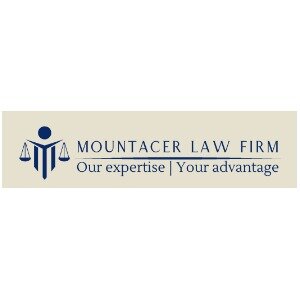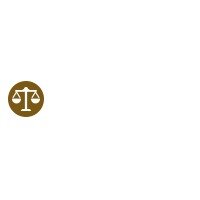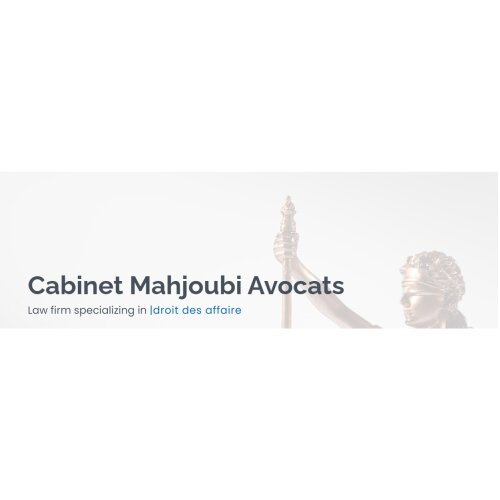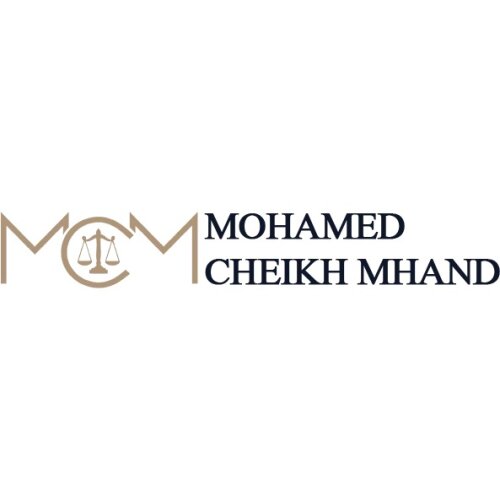Best Private Equity Lawyers in Morocco
Share your needs with us, get contacted by law firms.
Free. Takes 2 min.
Or refine your search by selecting a city:
List of the best lawyers in Morocco
About Private Equity Law in Morocco
Private equity in Morocco refers to investments made in private companies that are not listed on public stock exchanges. These investments typically involve private equity firms acquiring substantial or controlling stakes in Moroccan companies with the goal of helping them grow, restructure, or expand their operations. Over the past decade, Morocco has seen a gradual rise in private equity activity, supported by economic reforms and a growing interest from international investors. Private equity law governs how these investments are structured, financed, regulated, and exited, as well as the rights and obligations of parties involved.
Why You May Need a Lawyer
There are several situations where seeking legal advice in private equity matters is essential in Morocco. These include:
- Structuring a private equity fund or investment deal
- Negotiating the terms of buying or selling a significant stake in a company
- Conducting due diligence to assess risks and compliance
- Preparing or reviewing investment agreements and shareholder documents
- Addressing regulatory and tax compliance issues
- Protecting your rights as an investor or shareholder
- Advising on exit strategies such as selling your stake or initial public offerings
- Resolving disputes between investors, founders, or management
- Ensuring compliance with local and international anti-money laundering regulations
- Assistance with cross-border transactions and foreign investment rules
Private equity transactions are often complex, involving multiple parties, substantial sums, and detailed regulatory requirements. Legal counsel can help safeguard your interests and navigate potential challenges.
Local Laws Overview
Private equity activities in Morocco are influenced by several local laws and regulatory frameworks. Key aspects include:
- Company Law: The Moroccan Commercial Code and the Law on Public Limited Companies govern the formation, management, and operations of companies, including the rights of shareholders and protection of minority interests.
- Investment Regulations: The Moroccan Foreign Exchange Office regulates foreign investment, requiring registration and reporting for international investors. There are few restrictions on foreign ownership in most sectors, but investors are expected to comply with disclosure requirements.
- Financial Markets Authority: The Moroccan Capital Market Authority (AMMC) oversees private equity funds, public offerings, and securities transactions, ensuring transparency and investor protection.
- Taxation: Private equity deals may involve complex tax considerations, including capital gains, withholding taxes, and the use of holding companies. Morocco offers certain incentives for foreign and investment funds under specific conditions.
- Labour and Employment Law: Deals that involve restructuring or layoffs will require careful legal planning to comply with Moroccan labour laws and collective bargaining agreements.
- Anti-Money Laundering: There are strict laws to prevent money laundering and terrorist financing. Private equity investments must adhere to due diligence and reporting standards.
Understanding this legal framework is vital for both Moroccan and foreign investors to ensure compliance and reduce risk.
Frequently Asked Questions
What is private equity and how does it work in Morocco?
Private equity involves investments in unlisted companies. In Morocco, private equity firms or funds provide capital to businesses in exchange for equity, aiming to improve company performance and later sell their stake for a profit.
Can foreign investors participate in private equity in Morocco?
Yes, Morocco welcomes foreign investment in private equity and has a relatively open regime. However, foreign investors must comply with currency regulations and registration requirements.
How are private equity funds structured in Morocco?
Funds are commonly structured as investment companies or limited partnerships. The legal structure needs to comply with Moroccan financial market authority regulations and may require specific approvals.
What are the main legal risks for private equity investors in Morocco?
Key risks include regulatory compliance, disputes over management control, minority shareholder rights, tax matters, and exit limitations. Mitigating these risks requires careful legal planning.
What documentation is required for a private equity deal?
Common documents include investment agreements, shareholders agreements, due diligence reports, regulatory filings, and sometimes merger or acquisition contracts.
Are there sectoral restrictions for private equity investment in Morocco?
While most sectors are open, some strategic industries (such as defense or telecommunications) may have limitations or require government approval for foreign or private ownership.
How does the exit process work for private equity investments?
Exits can occur through a sale to another investor, an initial public offering, or buyback by the company. The process and timing can be affected by legal agreements and market conditions.
Is due diligence mandatory in private equity transactions?
While not legally required, thorough due diligence is highly recommended to identify legal, financial, and operational risks before making an investment.
What tax considerations are relevant for private equity in Morocco?
Taxation involves corporate tax, capital gains tax, and sometimes withholding tax. There may be incentives or exemptions depending on the type of investment and the sector.
Who regulates private equity in Morocco?
The primary regulator is the Moroccan Capital Market Authority (AMMC), along with the Foreign Exchange Office for foreign investments and the Moroccan tax authorities.
Additional Resources
If you are seeking more information or guidance in the private equity sector in Morocco, consider the following resources:
- Moroccan Capital Market Authority (AMMC) - for regulations, guidelines, and licenses
- Foreign Exchange Office (Office des Changes) - for rules on international investment
- General Confederation of Moroccan Enterprises (CGEM) - networking and advocacy for investors
- Investment and Export Development Agency (AMDIE) - support for investment projects
- Moroccan Ministry of Economy and Finance - for updates on fiscal and financial policy
- Moroccan Bar Association - for finding qualified legal professionals
Next Steps
If you need assistance with private equity matters in Morocco, consider the following steps:
- Clarify your objectives and the nature of your investment or transaction.
- Gather all relevant documents and background information about your prospective investment.
- Consult a local lawyer or a law firm with expertise in Moroccan private equity and investment law.
- Discuss potential structures, risks, and compliance requirements with your lawyer.
- Work with your advisor to conduct due diligence and draft all necessary legal documents.
- Ensure that all regulatory filings and approvals are properly handled.
- Regularly review your legal position and update agreements as your investment evolves.
Private equity transactions involve significant legal and financial considerations. Accessing professional legal support from the outset can help protect your interests and contribute to your investment success in Morocco.
Lawzana helps you find the best lawyers and law firms in Morocco through a curated and pre-screened list of qualified legal professionals. Our platform offers rankings and detailed profiles of attorneys and law firms, allowing you to compare based on practice areas, including Private Equity, experience, and client feedback.
Each profile includes a description of the firm's areas of practice, client reviews, team members and partners, year of establishment, spoken languages, office locations, contact information, social media presence, and any published articles or resources. Most firms on our platform speak English and are experienced in both local and international legal matters.
Get a quote from top-rated law firms in Morocco — quickly, securely, and without unnecessary hassle.
Disclaimer:
The information provided on this page is for general informational purposes only and does not constitute legal advice. While we strive to ensure the accuracy and relevance of the content, legal information may change over time, and interpretations of the law can vary. You should always consult with a qualified legal professional for advice specific to your situation.
We disclaim all liability for actions taken or not taken based on the content of this page. If you believe any information is incorrect or outdated, please contact us, and we will review and update it where appropriate.
Browse private equity law firms by city in Morocco
Refine your search by selecting a city.

















